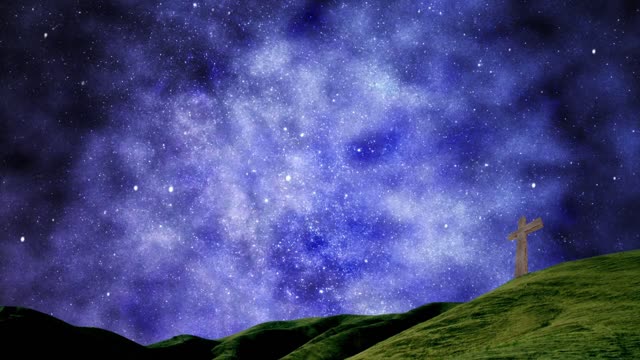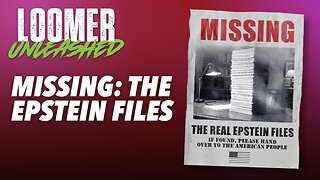Premium Only Content

Hey, Jude! (Take a Sad Song, and Make It, Better!)
WHAT IF EVERYTHING YOU THOUGHT YOU BELIEVED YOU KNOW ABOUT THE PANDEMIC TURNED OUT TO BE A LIE?
In Berthold Brecht's Life of Galileo, a particular favorite amongst the educated Marxists, of aspiring intelligensia variety, the Little Monk, who had been a good friend and "disciple" of the scientist, informs him that he has to discontinue his dedication to science because of the faith of his parents, which might be disruptive of their simple life as farmers on the campagna, and whose stars would fall from the sky, if they were to learn, contrary to what they had believed, on faith, that the earth was not at the center of the universe, commanding God's full attention.
Later, after he learns that Galileo had recanted his science and empirical observations to the Inquisition, the Little Monk, still in conscience devoted to science, finds Galileo, his teacher and mentor, to demand explanation as to why he had decided to recant, and did not hold out, and, Galileo replied: "They showed me the instruments, and I am old." Galileo knew the science, his friend, formerly Cardinal Barberini, who had been elected to become Pope Urban, had instructed the Inquisition that he did not want any physical harm to befall his friend, but it was perfectly okay to just mess with his head, and they did a convincing job, providing a tour of the torture facilities to show to him what they could do to make his life very uncomfortable.
In politics courses, Brecht's work becomes the introduction to a scientific revolution term most often associated with Harvard University professor Thomas Kuhn: paradigm and paradigmatic shifts.
In politics, students should at least be familiar with the Allegory of the Cave, from the "philosopher king" work, Plato's Republic, which demonstrates in dialogues from Socrates the educational process, finding those who live in a cave unable to comprehend anything beyond that which exists in the cave, and anyone who ascended out from the abyss, under the allegory, would not be able to find the terms to help them understand what he had learned after returning "from the mountaintop", so to speak.
Going full circle, if you attend seminary regarding Christian theology, particularly, you are going to be introduced to the term "revelation", which is not the way it goes in your head, if you are thinking even remotely about John of Patmos, but rather the thought connected to Aristotelian logic regarding the thought of an omnipotent, omnipresent God, far too vast to comprehend by a normal man, constricted to a three dimensioal, finite existence, with revelation being those timeslices or glimpses we might receive of that which is eternal, to understand the nature of God, for which, in Christian theology, there is provided the Bible, the incarnation, and those lucky enough, like Moses, to have a direct revelation from God, or John Denver encountering George Burns in the shower moment.
If you are not familiar with science, biology, epidemiology, etc., a pandemic, touching all four corners of the world is far outside your lane to comprehend; so, the truths you perceive are probably as far from reality as Santa Claus is to the mind of a child, and what that image represents for the Holiday Season, besides a marketing tool to sell Coca Cola, from where our modern American Santa finds its origins.
But esoterically, in language only an attorney might best understand, on March 7, 2020, the Supreme Court, Justice Alito abstaining from argument, provided great clarity to a novel coronavirus, from where it came and why.
-
 18:29
18:29
DeVory Darkins
14 hours ago $36.05 earnedZelenskyy KICKED OUT of the White House after shouting match erupts
113K207 -
 2:23:02
2:23:02
Badlands Media
1 day agoThe Liberty Den Ep. 133
131K63 -
 2:05:41
2:05:41
TimcastIRL
13 hours agoTrump SLAMS Ukraine President In TENSE WH Meeting, The War MAY END w/ Rob Smith | Timcast IRL
209K118 -
 10:31:05
10:31:05
Dr Disrespect
22 hours ago🔴LIVE - DR DISRESPECT - PGA TOUR 2K25 LAUNCH DAY
220K31 -
 2:30:04
2:30:04
Laura Loomer
13 hours agoEP105: MISSING: The Epstein Files
112K79 -
 1:46:14
1:46:14
Kim Iversen
14 hours agoTrump to Zelenskyy: 'You're Gambling with World War III'
118K157 -
 55:28
55:28
Glenn Greenwald
16 hours agoGlenn Reacts to Trump-Zelensky Exchange and Takes Q&A from our Members | SYSTEM UPDATE #415
177K264 -
 4:26:54
4:26:54
Nerdrotic
18 hours ago $47.24 earnedMarvel PANIC MODE! Kathleen Kennedy GONE?! Hollywood DEI Dead | Friday Night Tights 342 Nick Freitas
178K46 -
 1:30:03
1:30:03
Flyover Conservatives
1 day agoZelensky Fail... God Called IT!; From Prison to the White House: Angela Stanton King’s Unbelievable Redemption Story | FOC Show
81.7K6 -
 1:06:14
1:06:14
IsaacButterfield
18 hours ago $2.72 earnedFree Speech Is Dead | Did Trump Go Too Far? | Sexist Job
59.9K21